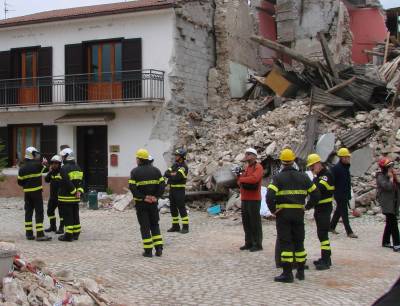In this science-led programme, you will learn how to assess and quantify risk, reduce disaster risks and manage emergencies.
Application deadline
If you're thinking of applying for September 2024 entry, please make sure your application is received by 5 April (for students who require visas) and 30 August (for students who do not).
YouTube Widget Placeholderhttps://youtu.be/bXiA0Ptz9rc
Teaching and Learning
Learn from world-class researchers and professionals delivering the programme through a combination of lectures, class discussions, problem-solving exercises, practicals, field trips, directed reading, student-led dialogue, and a practitioner-led real-time disaster scenario event. Assessment is by individual and group presentations, coursework, written examinations, and a research project.
Programme Specific Themes
Science of Earth and Space Hazards
- Analyze different hazard risks: seismicity, space weather, epidemics, conflict and climate
- Scenarios and case studies drawn globally providing breadth of experience
Statistical and Modelling Tools
- Statistical treatment of risk
- Bring together data and theory
IRDR MSc themes
Understanding Vulnerability
- From fragility curves describing damage to buildings to social vulnerability of individuals and society
Quantifying Risk
- What is risk and how do we measure it?
- Components of risk: exposure, hazard, vulnerability
Multidisciplinary Holistic Approaches
- Integrating scientific knowledge into disaster risk reduction research, policy and practice
- Communicating with stakeholders
Managing Disasters
- How to apply plans to manage real emergencies
More information
Find out key course information, including entry requirements, fees and funding and how to apply, on the UCL prospectus page.
Whether you wish to start a new career in risk and disaster reduction or you already have experience we are here to support you. With an MSc in Risk and Disaster Science you will have excellent academic credibility coupled with practical and analytical skills. We run an annual Careers and Opportunities Fair which offers expert and targeted advice, and hosts stalls from a range of employers and headhunters in the field of risk and disaster reduction. Our alumni are highly sought-after in the following sectors: insurance, catastrophe modelling , risk management, public policy, humanitarian development, NGOs, business continuity, government, emergency services, consultancy, and academia.
Some career destinations of recent IRDR graduates:
- Disaster Risk Management Consultant, World Bank
- Project Officer, Global Risk Forum, Davos
- Coastal Risk Management Officer, Environment Agency
- Project Officer, Cairo Local Government
- Field Delegate, Red Cross
- Global Engagement Fellow, Interpeace
- Resilience Technical Officer, International Medical Corps
- Project Officer, Rescue Global
- Emergency Information Management Specialist, Plan Nepal
- Business Continuity and Resilience Consultant, PwC
- Business Continuity Consultant, Arup
- Catastrophe Analyst, Barbican Insurance Group
- Analyst, RMS (Risk Management Solutions)
- Reinsurance Claims Management Executive
- AXA Global Re, Paris
- PhD Student, NERC London Doctoral School

 Close
Close


